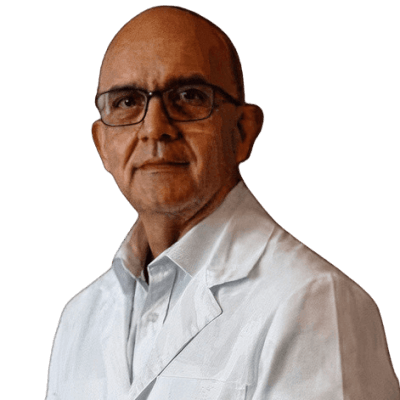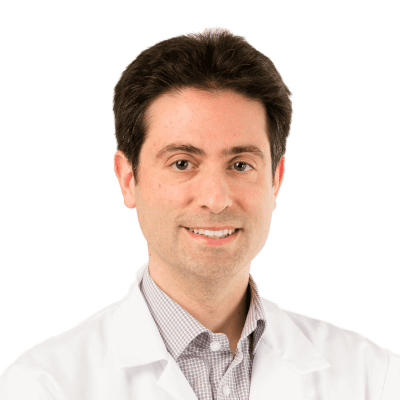Professor Geoff Woods
Professor of Human Genetics, Cambridge Institute for Medical research (CIMR), University of Cambridge and Honorary Consultant Clinical Genetics, Department of Clinical Genetics, Addenbrooke’s Hospital, Cambridge

United Kingdom
Areas of expertise
- Pediatric Neurology genetics
- Neurodevelopment disorders & Mendelian diseases
- Neurodegenerative disorders
- Adult and pediatric Pain and Pain Genetics
- Ophthalmic genetics
- Molecular genetic interpretation
- Human disease phenotypes and genotypes
- Microcephaly
About the expert
Professor Geoff Woods is a distinguished Professor of Human Genetics at the Cambridge Institute for Medical Research (CIMR) and an honorary consultant in Clinical Genetics at Addenbrooke’s Hospital. Specializing in neurodevelopmental and neurodegenerative disorders of childhood, he also leads specialist clinics and a regional Clinical Genetics service. A graduate of the University of Birmingham, his career includes roles in the NHS and international institutions. Committed to medical education, Woods is a prolific researcher with an impressive H-index of 80, having published extensively in top journals. He is also an active member of medical societies and has received numerous awards for his contributions to genetics.
Professor Geoff Woods is a renowned Professor of Human Genetics at the Cambridge Institute for Medical Research (CIMR), University of Cambridge. Holding an honorary consultant position in Clinical Genetics at Addenbrooke’s Hospital, his extensive clinical experience encompasses a broad spectrum of genetic disorders. Professor Woods is particularly specialized in neurodevelopmental and neurodegenerative disorders of childhood, focusing on human disease phenotypes and genotypes, as well as molecular genetic interpretation. He manages a regional Clinical Genetics service and runs specialist clinics in ophthalmic genetics, pediatric neurology genetics, and congenital insensitivity to pain.
A graduate of the University of Birmingham, where he completed his MB ChB and MD, Professor Woods also holds MRCP (Paediatrics) and FRCP qualifications. His illustrious career includes previous roles as Clinical Lead of the NHS Department of Clinical Genetics at Addenbrooke’s Hospital, Consultant Clinical Geneticist at St James’s University Hospital in Leeds, and the Murdoch Institute for Birth Defects in Melbourne, Australia. His contributions to medical genetics have been recognized with his election as a Fellow of the Academy of Medical Sciences (FMedSci).
Professor Woods is deeply committed to medical education and mentorship, having served as a lecturer and later a reader in Medical Genetics at the University of Cambridge. His influence extends to teaching medical students, junior doctors, and colleagues, fostering a collaborative and enriching academic environment. His research is highly collaborative, with his team focusing on Mendelian diseases of neurodevelopment, particularly human pain perception and its genetic and biological underpinnings.
A prolific contributor to the scientific community, Professor Woods boasts an impressive H-index of 80, reflecting the high impact of his work. His research is extensively published in prestigious journals such as Nature, Science, and The Lancet Neurology. Notable publications include studies on the genetic basis of congenital insensitivity to pain and the role of sodium channel genes in pain-related disorders. His research endeavors are supported by substantial grants from esteemed institutions like UKRI, the Pain Research Foundation, and pharmaceutical companies such as AstraZeneca and Eli Lilly, amounting to over £4.5 million.
In addition to his academic and clinical roles, Professor Woods is an active member of various medical societies and has been honored with numerous awards for his contributions to genetics. His social roles include advocating for patients with rare genetic disorders and contributing to public understanding of genetic diseases. Through his groundbreaking research, clinical expertise, and dedication to education, Professor Geoff Woods continues to make significant strides in the field of human genetics.
-
Professor of Human Genetics and Principal Investigator
2011 - TodaySchool of Clinical Medicine in the Cambridge Institute for Medical research (CIMR), University of Cambridge, UK
-
Honorary Consultant Clinical Genetics,
2011 - TodayDepartment of Clinical Genetics, Addenbrooke’s Hospital, Cambridge, UK
-
Clinical Lead of NHS Department of Clinical Genetics
2009 - 2011Addenbrookes Hospital, Cambridge, UK
-
Lecturer, then Reader, in Medical Genetics
2005 - 2011School of Clinical Medicine, University of Cambridge
-
Honorary Consultant Clinical Genetics
2005 - 2011Department of Clinical Genetics, Addenbrooke’s Hospital, Cambridge
-
Wellcome Trust Research Leave for Clinical Academics Fellow
2000 - 2004MMU, University of Leeds
-
Consultant Clinical Geneticist
1995 - 2004Yorkshire Regional Genetics Service, St James’s University Hospital, Leeds
-
Consultant Clinical Geneticist
1993 - 1994Murdoch Institute for Birth Defects, Melbourne Children’s Hospital, Australia
-
MB ChB
University of Birmingham, UK
1981
-
MRCP (Paediatrics)
1985
-
MD
University of Birmingham: UK
1989
-
FRCP
2000
-
FMedSci
2013
Other experts inthe same speciality















